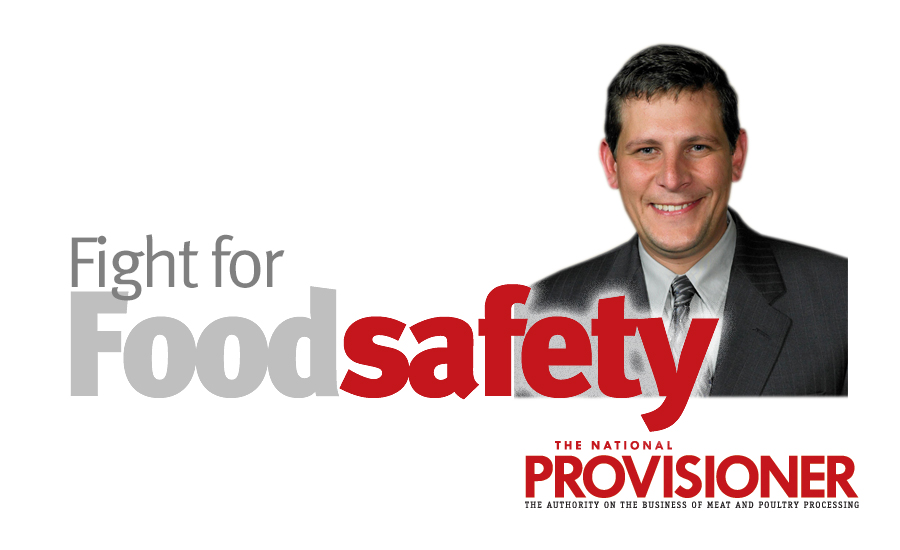Fight for Food Safety
Government will wield criminal hammer

Over the last three decades, the business of food safety has changed dramatically. The term “food safety” has a prominent role in our national dialogue, the government continuously announces increasingly complex regulations, the Centers for Disease Control and Prevention (CDC) oversees a surveillance system that can quickly identify emerging outbreaks and, to adequately protect their brands, corporate executives are continuously forced to develop new interventions to keep contaminated food out of commerce.
In addition to working to protect their brands from regulatory and civil exposure, however, corporate executives must now also be concerned about protecting themselves from criminal exposure. In addition to strengthening the laws regarding food production, the government is now hardening its enforcement tools as well. In particular, the Food and Drug Administration (FDA) has announced that it plans to use criminal sanctions to compel compliance and create a deterrent, and I predict the U.S. Department of Agriculture (USDA) will eventually follow suit.
The FDA has publicized its willingness to bring criminal charges against food-industry executives in a number of recent high-profile cases. The most notable involves Peanut Corporation of America (PCA). Stewart Parnell, 61, the owner of PCA, was sentenced to 28 years in prison for knowingly selling peanut products contaminated with Salmonella. Parnell’s brother, a peanut broker, was sentenced to 20 years in prison. Parnell’s quality-assurance manager was sentenced to five years in prison.
Interestingly, however, knowledge or intent is not required to support criminal charges. Under the Park Doctrine (established by U.S. Supreme Court case law), a food-industry executive can be sentenced to prison if he or she is aware of a circumstance that could lead to an illness and fails to take action to correct it. If charged with this type of misdemeanor, the executive could be sentenced to up to a year in prison and be fined $250,000 for each count.
The FDA is using these standards to bring charges in an increasing number of cases. In 2011, Jensen Farms distributed cantaloupe contaminated with Listeria monocytogenes. The tainted cantaloupe sickened nearly 150 people and killed more than 30. Although the owners of the company did not know their cantaloupe was tainted, federal prosecutors brought charges under the Park Doctrine arguing the company failed to take appropriate steps to prevent the contamination. More recently, the U.S. Department of Justice, working with FDA, has served federal grand jury subpoenas on companies such as Blue Bell and Chipotle after their outbreaks.
Increasingly, it seems the government will look for a justification to bring criminal charges any time a contaminated product causes human illness. Thus, at every turn, make sure your company is not only doing everything it should to adequately protect its brand, but that you are doing everything you should to protect yourself. NP
Looking for a reprint of this article?
From high-res PDFs to custom plaques, order your copy today!






